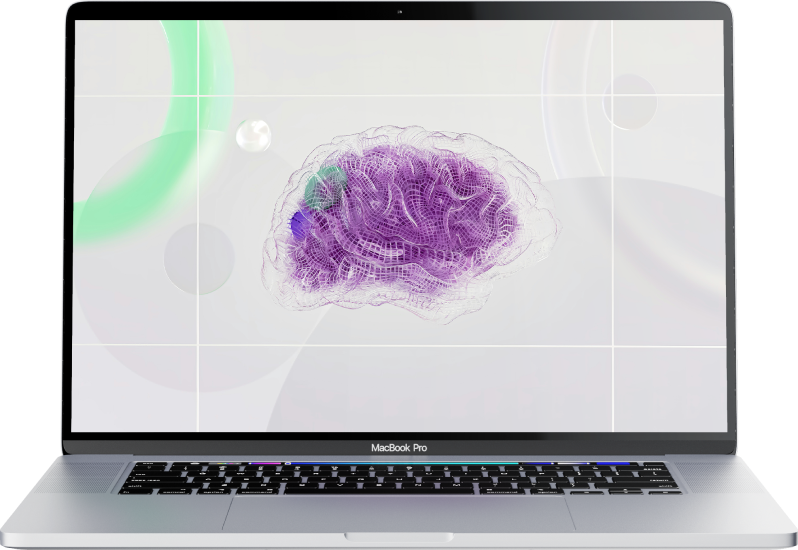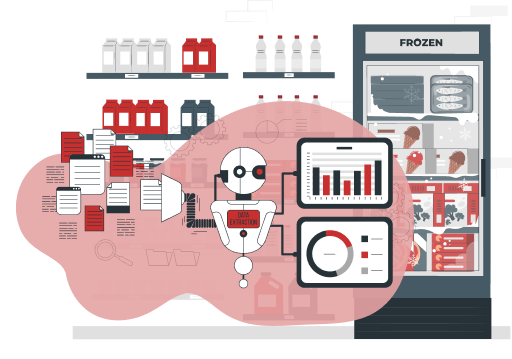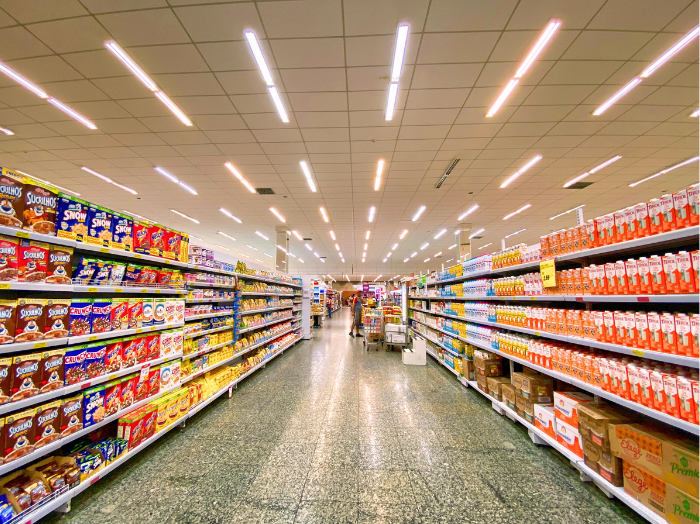
A computer vision model wrapped into an application for supermarket merchandizers, capable of recognizing packages of particular goods and brands on the shelves, analyzing the amount in stock, the layout, and the popularity per brand. In this way, the AI/ML model helps the merchandizers and supermarket management understand the possible gaps in their strategy and alert via push notifications whenever possible actions can be suggested for increased efficiency.

.NET

MongoDB

Identity Server

Angular

Xamarin
The client is an aspiring mid-tier supermarket and mini-supermarket chain operating in Central and Northern Europe in a highly competitive environment. The competitive advantage embodied in their business model involved not just product diversity and quality, but also the need to constantly upgrade their merchandizing capacities and logistics, leading for them to adopt an AI model to handle the latter aspect of their operations.

Our team was tasked with creating a scalable YOLO-based computer vision model wrapped in mobile/web UI for internal use that would streamline and automate product recognition on the shelves, be integrated with the existing digital infrastructure, and allow for real-time reporting and notifications to the responsible users.

Recognize the type of product, package, brand, and amount on the shelf through computer vision
Analyze the popularity of each brand and sub-brand based on the available information
Monitor the amounts of products in stock
Monitor and keep track of sales per product based on adjustable criteria
Visualize the data and provide push notifications to merchandizers in certain scenarios
Provide real-time reporting and heatmaps
Integrate with the existing ERP and other systems

Lionwood.software implemented the computer vision model to process visual information (obtaining that information could be “crowdsourced” among employees, reducing the need for manual tasks to the bare minimum) and AI-based algorithms to provide suggestions and visualize data in real-time.
The main features included:
The outcome, besides improved shelf management, also included a 25% increase in sales efficiency attested 3 months after system rollout.

